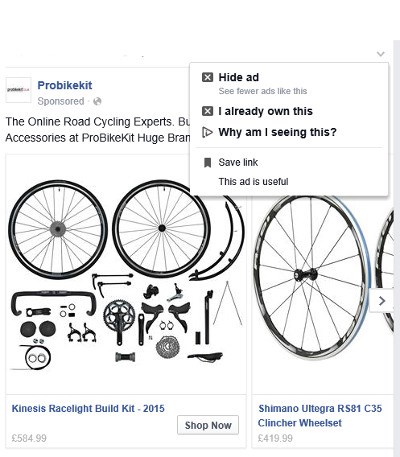What's happening in social? Three moves not to miss - #1
11 May 2017
Welcome to the first in a series of posts outlining what we consider to be the top three changes to social media platforms from the past few weeks.
Our aim is to dig into the weeds of the major social platforms and highlight the latest changes affecting social media marketers and brands - but if you'd like a more detailed conversation, explaining the implications of these changes and how we can help you be more successful using social media then get in touch today.
News out of Instagram which came as a surprise (but shouldn't have come as a surprise at all based on what other networks have done) tells us that the feed for users will, in the future, no longer show content in chronological order. According to Instagram the change is being made because 'people miss on average 70% of their feeds' and they want to ensure that users don't miss the content they think is most valuable to them.
What this means for marketers right now is still unclear with Instagram saying that ads will show to users 'no matter how many accounts they follow or what time zone they are in.' What is clear though is that the major social networks want more control over what content is shown to users and when. We expect, just as with Facebook, that Instagram will become more of a pay-to-play network in the future with organic brand posts becoming much less visible in a user’s feed.




No official word from Facebook on when this feature was rolled out or the impact for advertisers but I’m seeing a new option in the drop-down menu next to ads. Users can now choose to select 'I already own this product' which removes the ad and presumably stops it from being show again to that user.
We work hard to ensure our clients' Facebook campaigns are targeted at the right people with the right motivations and at the right time using some of the more advanced Facebook marketing tactics. The Facebook pixel is just one way we tie specific user events - such as placing a product into a basket - to campaigns to bring an increased ROI for our clients and a better experience for those being served ads.
Following the outcry from users around increasing the 140-character limit on Twitter, founder Jack Dorsey told NBC that we won't be seeing the end of concise messaging ahead of the network's 10th birthday. How this squares up with Twitter's difficulties around keeping people on the network – and thus delivering more ads to users - and not moving away to consume content elsewhere remains to be seen.
Keep an eye on our blog or follow us on Twitter for our take on the latest in social media. And if you want to talk about how you might be able to do things better on social media get in touch with our dedicated Content Marketing team today by leaving your details here or emailing us via info@metia.com
